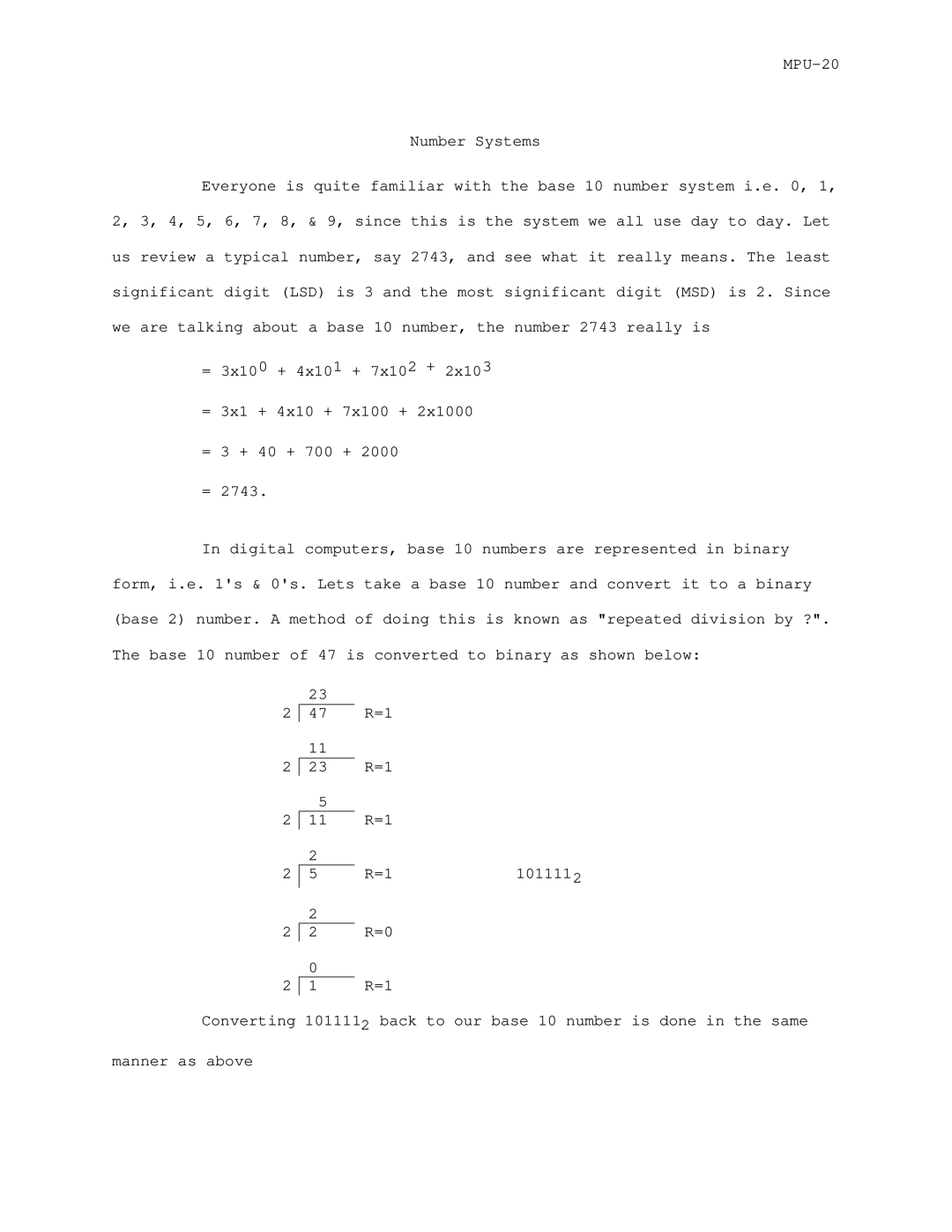Number Systems
Everyone is quite familiar with the base 10 number system i.e. 0, 1, 2, 3, 4, 5, 6, 7, 8, & 9, since this is the system we all use day to day. Let us review a typical number, say 2743, and see what it really means. The least significant digit (LSD) is 3 and the most significant digit (MSD) is 2. Since we are talking about a base 10 number, the number 2743 really is
=3x100 + 4x101 + 7x102 + 2x103
=3x1 + 4x10 + 7x100 + 2x1000
=3 + 40 + 700 + 2000
=2743.
In digital computers, base 10 numbers are represented in binary
form, i.e. 1's & 0's. Lets take a base 10 number and convert it to a binary (base 2) number. A method of doing this is known as "repeated division by ?". The base 10 number of 47 is converted to binary as shown below:
2 | 23 | R=1 |
|
47 |
| ||
2 | 11 | R=1 |
|
23 |
| ||
2 | 5 | R=1 |
|
11 |
| ||
2 | 2 | R=1 | 1011112 |
5 | |||
2 | 2 | R=0 |
|
2 |
| ||
2 | 0 | R=1 |
|
1 |
|
Converting 1011112 back to our base 10 number is done in the same
manner as above
